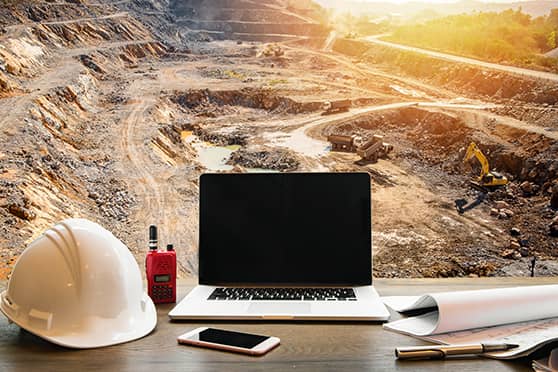Summary
Mining Engineering encompasses the entire process of mining operations
IIT Kharagpur and IIEST Shibpur offer both bachelor’s and master’s courses
Mining Engineering courses can be a great place to start if you want to work in the natural resource management sector. Studying this Engineering discipline will help you get acquainted with the latest technologies to extract natural resources to take civilisation forward.
What is Mining Engineering
Mining Engineering deals with the technology, science and application of minerals that have been processed and taken from the natural world. It encompasses the entire process of mining operations, including discovery, exploration, feasibility, production, processing, development, marketing, and restoration and rehabilitation of the extraction area.
Studying Mining Engineering:
- You need to clear your Class XII board exams or an equivalent exam with Physics, Chemistry and Maths as compulsory subjects. You need at least 75% marks for admission to IITs, NITs and GFTIs.
- You need to clear JEE Mains, conducted by the National Testing Agency (NTA), for admission to NITs, CFTIs and other engineering institutes.
- You need to clear JEE Advanced to get into IITs and IIT (ISM) Dhanbad. To be eligible for JEE Advanced, you need to be among the top 2,50,000 successful candidates (across all categories) in the BE/BTech paper of JEE Mains.
- You can get a Mining Engineering degree by clearing any of the state joint entrance exams.
- For a master’s degree in Mining Engineering, you need to clear GATE (Graduate Aptitude Test in Engineering).
Some top institutes for Mining Engineering:
IIT Kharagpur, West Bengal
Course: BTech in Mining Engineering.
- Duration: Four years.
- Admission: Depends on your rank in JEE Advanced.
Course: MTech in Mining Engineering.
- Duration: Two years.
- Admission: Depends on your GATE rank.
Click here to learn more.
Indian Institute of Engineering Science and Technology (IIEST), Shibpur
Course: BTech in Mining Engineering.
- Duration: Four years.
- Admission: Depends on your rank in JEE Mains.
Course: MTech in Mining Engineering.
- Duration: Two years.
- Admission: Depends on your GATE rank.
Course: Dual Degree (BTech—MTech)
- Duration: Five years.
- Admission: Depends on your rank in JEE Mains.
Click here to learn more.
IIT Indian School of Mines (ISM), Dhanbad
Course: BTech in Mining Machinery Engineering.
- Duration: Four years.
- Admission: Depends on your rank in JEE Advanced.
Course: MTech in Mining Machinery Engineering.
- Duration: Two years.
- Admission: Depends on your GATE rank.
Click here to learn more.
National Institute of Technology, Karnataka
Course: BTech in Mining Engineering.
- Duration: Four years.
- Admission: Depends on your rank in JEE Mains.
Course: MTech in Mining Engineering.
- Duration: Two years.
- Admission: Depends on your GATE rank.
Click here to learn more.
Delhi Technological University, Delhi
Course: BTech in Mining Engineering.
- Duration: Four years.
- Admission: Depends on your rank in JEE Mains.
Course: MTech in Mining Engineering.
- Duration: Two years.
- Admission: Depends on your GATE rank.
Click here to know more.
National Institute of Technology, Rourkela, Odisha
Course: BTech in Mining Engineering.
- Duration: Four years.
- Admission: Depends on your rank in JEE Mains.
Course: MTech in Mining Engineering.
- Duration: Two years.
- Admission: Depends on your GATE rank.
Click here to learn more.
Study abroad:
A lot of reputed foreign technological institutes teach Mining Engineering to produce professionals working in the natural resources sector. Here’s a list of foreign institutes that offer such courses:
- Massachusetts Institute of Technology (MIT), US
- Stanford University, US
- Harvard University, US
- University of Manchester, UK
- Imperial College London, UK
- University of Queensland, Australia
Job roles with a Mining Engineering degree:
-
Mining engineer: They assess the business viability of new mining operations, design potential mining locations and supervise building projects.
-
Operations manager: They manage their department's developmental efforts and offer a strategic direction in order to achieve the company's objectives and goals.
-
Mining safety engineer: They are in charge of ensuring that all safety precautions are taken. They also train, monitor and document all connected actions.
-
Petroleum engineer: They work on practically every level of oil and gas field appraisal, development and production process. Their goal is to maximise hydrocarbon recovery at the lowest possible cost while minimising environmental damage.
-
Design engineer: They monitor, check calculations and structural design, and keep track of timetables and labour. They also modify or change existing processes to make them more efficient.
-
Mine ventilation engineer: They ensure that miners have a constant supply of fresh air inside mines. This entails regulating heat and humidity levels as well as removing unpleasant gases.
-
Mining investment analyst: They study and analyse financial accounts for private and public enterprises. It’s their job to assist senior members of the metals and mining team in tracking and evaluating mineral and metals commodities markets.
Last updated on 21 Mar 2022

